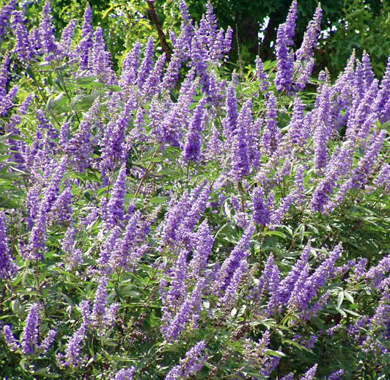Premenstrual Syndrome (PMS) is a cluster of physical and emotional symptoms associated with the menstrual cycle. Between 50 and 70% of women experience some degree of PMS regularly. Common complaints include fatigue, irritability, breast tenderness, headache, food cravings and bloating.
According to health expert Lorna Vanderhaeghe, author of An A-Z Woman’s Guide to Vibrant Health, most women believe that PMS is normal and inevitable — a belief she says is mistaken. Instead, Vanderhaeghe links PMS to a variety of factors, including poor liver and bowel function, poor diet and nutritional deficiencies.
Dr Michael Murray, ND, co-author of the Encyclopedia of Natural Medicine, agrees that dietary changes can help ease symptoms during this period of hormonal imbalance. He recommends increasing vegetables, fruits, whole grains and seeds while decreasing animal and dairy products. Reducing fat and sugar intake, as well as caffeine, also helps.
Both experts also note some key supplements shown to ease PMS symptoms:
• MAGNESIUM: Red blood cell levels of this important mineral are significantly lower in those suffering PMS. Studies prove that supplementing with magnesium can dramatically reduce PMS symptoms.
• VITAMIN B6: First shown in 1975 to ease symptoms of depression linked with taking birth control pills, further studies have now indicated its usefulness in easing PMS. In one study, 84% of women taking B6 had lower scores on PMS symptoms.
• CHASTETREE BERRY (VITEX): Studies verify that vitex has hormone-normalizing properties that are effective for easing PMS symptoms. It is the most popular herbal approach to PMS used by German doctors and provided dramatic relief in one study of 1,500 women: 90% of them reported either significant improvement or complete resolution of symptoms!
• BLACK COHOSH: A “phytoestrogen,” black cohosh is useful for both PMS and menopause symptoms. It is also widely used in Germany and was judged to have “performed very well” in treating PMS. In particular, women reported less depression, mood swings, anxiety and tension while taking black cohosh.
• MILK THISTLE: Several studies suggest that active substances in milk thistle (particularly silymarin) support and protect the liver. The liver is responsible for metabolizing and ridding the body of the excess estrogens which can cause PMS symptoms. Ovarian cysts, weight-gain and certain cancers have also been linked to excess estrogens.
Other helpful PMS remedies include indole-3-carbinol, evening primrose oil and 5-HTP.
Sources: An A-Z Woman’s Guide to Vibrant Health by L Vanderhaeghe, Health Venture:2004; Encyclopedia of Natural Medicine (2nd Ed) by M Murray and J Pizzorno, Prima:1998

